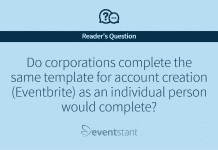F&B Minimum, short for Food and Beverage Minimum, is the contractual requirement specifying the minimum amount of money an event planner or host must spend on food and beverages at a particular event venue.
As a novice event planner, you're likely to encounter various terms and concepts that are essential to understand for successful event coordination. One such term you'll frequently see is “F&B Minimum,” which stands for Food and Beverage Minimum.
What is the F&B Minimum?
In the world of event planning, the Food and Beverage Minimum, often abbreviated as F&B minimum, refers to the minimum amount of money an event host or planner must spend on food and beverages at a particular venue. It is a contractual obligation agreed upon between the event planner or host and the venue.
Significance of F&B Minimum
Understanding the significance of F&B minimum is essential for several reasons:
1. Venue Selection
When you're selecting a venue for your event, you need to be aware of the F&B minimum, as it can significantly impact your budget. Venues often have varying F&B minimum requirements, and you must choose one that aligns with your event's size and budget.
2. Budget Planning
F&B costs can constitute a substantial portion of your event budget. Knowing the F&B minimum allows you to plan your budget more accurately and avoid unexpected expenses.
3. Negotiation
Being informed about F&B minimums empowers you during negotiations with venues. You can negotiate more favorable terms for your budget while meeting the venue's requirements.
4. Menu Customization
Understanding the F&B minimum also allows you to customize the menu to suit your event's needs. You can work with the venue's catering team to create a menu that meets the minimum spending requirement while satisfying your guests' preferences.
5. Free Meeting Space
Some venues, such as hotels, will offer free meeting space if you meet the agreed-upon F&B minimum. This is a good way to save money on meeting space if you meet the minimum. Otherwise, you will have to pay for the meeting space.
How F&B Minimums Work
F&B minimums typically work as follows:
- Requirement: The venue specifies a minimum amount the event planner must spend on food and beverages. This amount may vary depending on factors such as the event date, time, and venue popularity.
- Agreement: When you book the venue, you will enter into an agreement that includes the F&B minimum requirement. This agreement outlines the terms and conditions associated with the minimum spending.
- Calculating Expenses: As you plan your event, you work with the venue's catering team to select items from the menu. The costs of these items contribute to meeting the F&B minimum.
- Additional Charges: If your food and beverage expenses do not reach the F&B minimum by the end of the event, you will be charged the difference as an additional fee or pay for the meeting space if it was supposed to be free.
Tips for Managing F&B Minimums
To effectively manage F&B minimums as a beginner event planner, consider the following tips:
- Thoroughly Review Contracts: Carefully review venue contracts to understand the F&B minimum terms and any associated fees.
- Plan Your Menu Wisely: Work closely with the venue's catering team to create a menu that balances your guests' preferences with the minimum spending requirement.
- Keep Records: Maintain accurate records of all food and beverage orders during the event to ensure compliance with the F&B minimum.
- Communication: Stay in constant communication with the venue's staff to make adjustments as necessary to meet the minimum.
Understanding F&B minimums is crucial for beginner event planners. It impacts budgeting, venue selection, and negotiation. By grasping the concept and effectively managing it, you'll be better equipped to plan successful events within your budgetary constraints.









![How Important Are Face to Face Meetings [INFOGRAPHIC]](https://eventstant.com/wp-content/uploads/faceToface_v11-sm-218x150.jpg)







